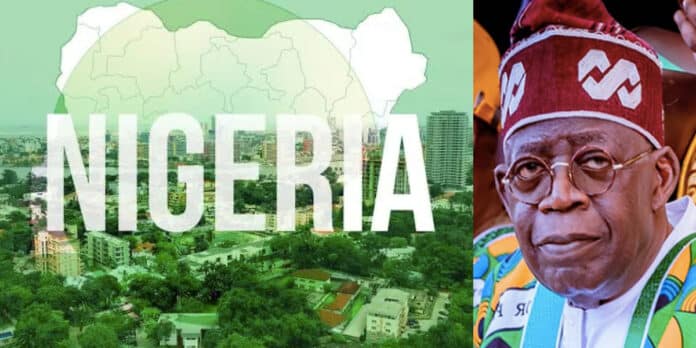Want to find out how to survive as a Nigerian in 2024? Then you’re exactly where you need to be because you’ll be reading the details from a full-blooded Nigerian.
As the most populous and largest economy in Africa, Nigeria is facing a series of daunting challenges in 2024. The country is struggling with a severe economic crisis triggered by the sharp devaluation of its currency, the Naira, which has lost more than 50% of its value against the US dollar since 2020.
Now, it’s worse! Every little thing is expensive, and the masses have been finding it difficult to buy even the cheapest food that has always come to the rescue of the lowest class of Nigerians – Garri. The question now is, if we can’t even afford Garri, are we not in trouble?
This article will discuss the main reasons behind our current situation, the latest developments, and the possible solutions.
Understanding How to Survive as a Nigerian in 2024
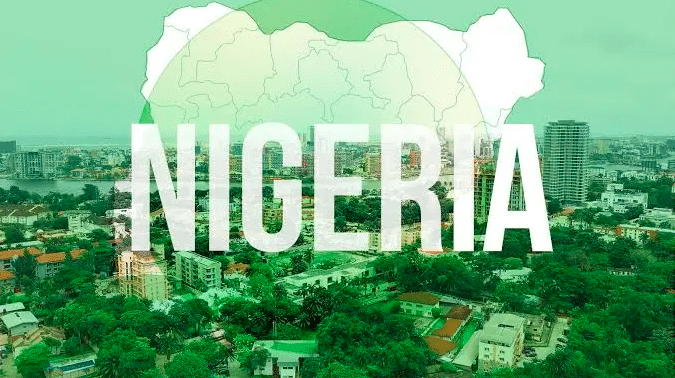
The decline in the value of the Naira has caused inflation to rise significantly, reaching a record high of 25% in January 2024. This has resulted in a decrease in the purchasing power of millions of Nigerians, making the cost of living soar due to the increase in prices for goods and services.
To worsen Nigeria’s challenges, the government made a decision to eliminate subsidies on petroleum products towards the end of 2023. This move led to a hike in fuel prices.
The intention behind removing these subsidies was twofold; first, it aimed to alleviate the burden on the government as it currently allocates 30% of its budget towards fuel subsidies; secondly, it aimed to encourage private investments within the oil sector.
However, this decision sparked protests and strikes throughout Nigeria. Many Nigerians heavily rely on fuel for their livelihoods and transportation needs. The increased fuel prices also had effects on sectors such as electricity, agriculture and manufacturing that rely on fuel as an input.
READ MORE: Valentine’s Day is not sweet again– Kizz Daniel laments
Nigeria’s social and political climate is currently tense, starting with the dissatisfaction with President Muhammadu Buhari’s leadership.
Buhari, who came to power in 2015 on a platform of fighting corruption and insecurity, was accused of failing to deliver on his promises and of being aloof and detached from the realities of the people. His administration was marred by allegations of nepotism, human rights violations, and poor governance.
His handling of the COVID-19 pandemic, which claimed over 10,000 lives in Nigeria, was also criticized as inadequate and ineffective. Many Nigerians were looking forward to the 2023 general elections, hoping for a change of leadership and direction.
In this article, we will explore some of the key challenges that Nigerians are facing in 2024 and offer some practical tips and strategies on how to survive and thrive in these difficult times. We will focus on the following topics:
The Challenges Facing Nigeria in 2024
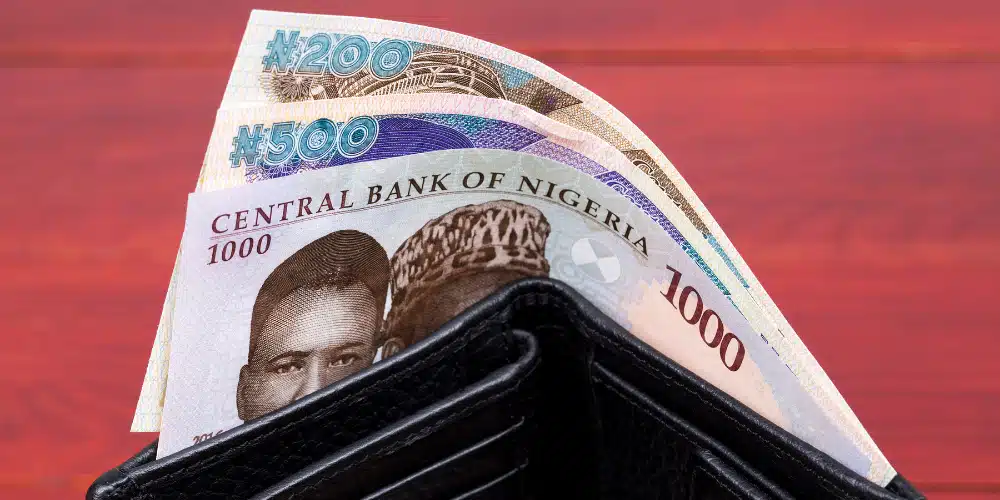
There are different factors responsible for the state of the country currently. Some of them have been discussed below:
1. Naira Devaluation and Inflation
One of the main challenges that Nigerians are facing in 2024 is the devaluation of the Naira and the consequent inflation. The Naira’s devaluation is a result of several factors, such as:
The oil price and production hike reduced Nigeria’s foreign exchange earnings and reserves. Oil accounts for about 90% of Nigeria’s exports and 60% of its government revenue.
The lack of confidence in the Naira and the Nigerian economy prompted investors and businesses to convert their Naira holdings into foreign currencies, creating a shortage of dollars in the market and putting pressure on the Naira.
The inconsistent and unpredictable exchange rate policies of the Central Bank of Nigeria (CBN), which has tried to manage the Naira’s value through various interventions, such as imposing restrictions on access to foreign exchange, devaluing the official exchange rate, and creating multiple exchange rate windows for different segments of the market.
The implications of the Naira’s devaluation are manifold and far-reaching. The most obvious and direct effect is the increase in inflation, which measures the general rise in prices of goods and services over time. Inflation reduces the real value of money and erodes the purchasing power of consumers.
Inflation also affects the production and supply of goods and services, as it increases the cost of inputs, such as raw materials, labour, and transportation. Inflation also discourages savings and investment, as it reduces the real returns on financial assets and creates uncertainty and instability in the market.
Inflation also affects the balance of payments, as it makes imports more expensive and exports less competitive. Inflation also has social and political implications, as it increases poverty, inequality, and discontent among the population.
See: 10+ Reasons Why There Are So Many Churches In Nigeria
2. Petroleum Subsidy and Fuel Price Hike
Again, the subject of the removal of subsidy on petroleum and the attendant hike in the price of fuel will continue to be a very big issue Nigerians will contend with come 2024.
The petroleum subsidy was a policy that kept the pump price of PMS low in an artificial sense, having been at the expense of the government paying the difference between the landing cost and the retail price to the importers and marketers of PMS.
The subsidy was meant to cushion Nigerians against the vagaries of the global oil market and, at the same time, make fuel affordable and available to all.
The policy of subsidy, however, was bedevilled by a myriad of shortcomings and ineptitudes, among which were:
This represented a major fiscal burden on the government, which generally disbursed about 30% of its budget to subsidize fuel, or an equivalent of 4.3 trillion Naira ($9.3 billion) in 2023 and 3.36 trillion Naira ($7.3 billion) in the first semester of 2024.
It reduced the space for fiscal spending on the more critical sectors of health, education, and infrastructure.
It was a source of corruption and leakage, from some inflated claims of importers and marketers to the diversion of subsidized fuel to neighbouring countries or the selling of adulterated or substandard products to consumers.
According to the Nigeria Extractive Industries Transparency Initiative (NEITI), some 2.23 trillion naira ($4.8 billion) was said to have been lost to fuel subsidy fraud in Nigeria between 2011 and 2015.
This was a disincentive for private investment in the domestic refining capacity as the regulated price of PMS was lower than the cost of production. In this context, this made Nigeria dependent on imported fuel despite being a major oil producer.
An estimated 20.89bn litres of PMS were imported into Nigeria in 2023, a year during which the consumption of the country stood at 94%, according to the Nigerian National Petroleum Corporation (NNPC).
It was a regressive policy in that the rich benefited more than the poor since the rich consumed more fuel than the poor. The World Bank calculated that the richest 10% of Nigerians captured 40% of the fuel subsidy, while the poorest 10% captured only 1%.
In fact, by late 2023, the new administration of President Bola Tinubu had taken the decision to end the subsidy policy for good, as part of his economic reform agenda.
The president declared during his inaugural speech that “fuel subsidy is gone” and that resources accruing from the fuel subsidy removal will be channeled into public infrastructure and social welfare.
NNPC later reviewed the retail prices of PMS in accordance with the market realities, which essentially led to sharp increases in the prices of fuel all over the country. The new pricing template showed the average pump price of PMS increased from 190 Naira ($0.41) per litre in May 2023 to 522 naira ($1.13) per litre in June 2024, representing a 175% hike.
RELATED: Nigeria rises 14 spots in FIFA ranking despite AFCON 2023 final loss
The de-subsidy and price rise of fuel had various impacts on the Nigerian economy and society, which included:
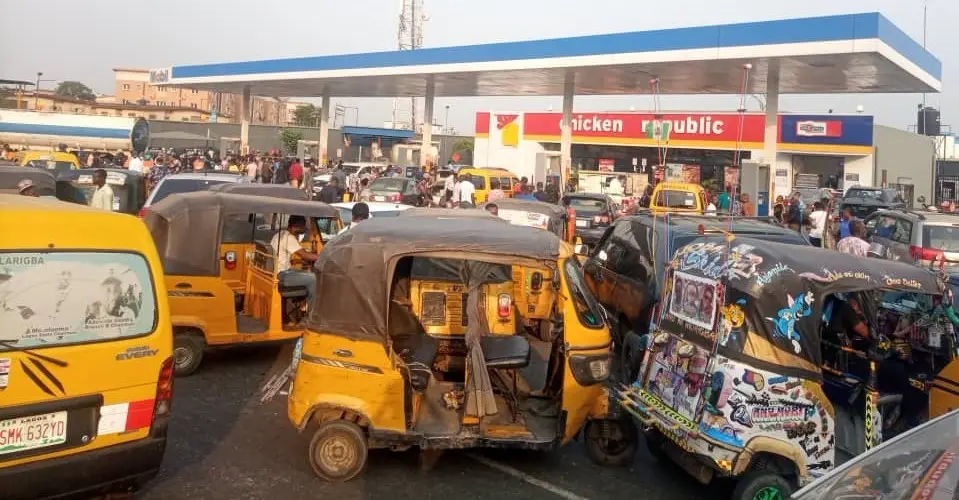
Firing up inflationary pressure, as fuel is one of the main inputs to many goods and services. In the transport sector, which accounts for about 11% of the consumer price index, prices increased by 32% between May 2023 and June 2024.
The food sector, which accounts for about 51% of the consumer price index, saw its prices increase by 28% in the same period as the cost of transporting agricultural products from the rural to the urban areas went up. The general inflation rate improved from 25.8% in August 2023 to 27.5% in June 2024.
This caused social unrest and, as a result, disillusionment because many Nigerians complained about the increase in fuel prices and called for a restoration of the previous status quo.
The nationwide strikes and protests mobilized by the labour unions, including the Nigeria Labour Congress (NLC) and the Trade Union Congress (TUC), grounded all economic activities and public services.
The protesters also accused the government of failure to make palliatives and alternatives that would lessen the impact of the fuel price hike, saying that it was insensitivity and anti-people on the side of the government.
It also opened avenues for efficiency and innovation as some Nigerians adjusted to the new reality and began to devise ways to reduce their fuel usage and fuel costs. Some Nigerians have switched to cheaper and cleaner sources of energy, like solar, wind, and biogas.
Some Nigerians supported the idea of using public transport, doing ride-sharing, or cycling rather than using one’s car. Some Nigerians experienced that some digital platforms, such as e-commerce, e-learning, and teleworking, had the function of reducing the necessary physical mobility.
It only energized the private investments and competition in the sector as the game of the subsidy was over, and everybody stood on the same level playing field.
Deregulation of the PMS price also triggers domestic refining capacity as the privatized refineries – Dangote, modular ones -become viable and profitable. The increase in local refining capacity reduced Nigeria’s dependence on imported fuel and improved its energy security.
To cope with the effects of the fuel price hike, Nigerians need to adopt some strategies, such as:
ALSO READ: Dating Nigerian girls abroad is better than at home – Timini shares experience
Advocating and supporting the government’s efforts to invest the funds saved from the subsidy removal in public infrastructure and social welfare, such as roads, railways, power, health, education, and social protection.
These investments would improve the quality and accessibility of public services, create jobs and income opportunities, and reduce poverty and inequality.
Demanding and ensuring transparency and accountability in the management of the oil sector, especially the NNPC, which is the sole importer and marketer of PMS in the country.
The NNPC should publish its financial and operational reports regularly and subject itself to independent audits and oversight. The NNPC should also ensure that the PMS price is determined by market forces and not by political or bureaucratic interference.
Embracing and promoting energy efficiency and diversification by using fuel sparingly and wisely and by exploring alternative and renewable sources of energy, such as solar, wind, and biogas.
These sources of energy are cheaper, cleaner, and more sustainable than fossil fuels and can reduce Nigeria’s carbon footprint and environmental impact.
Leveraging and enhancing digital skills and platforms by using e-commerce, e-learning, and teleworking to reduce the need for physical mobility and fuel consumption. These digital skills and platforms can also increase productivity, innovation, and competitiveness and create new markets and opportunities for Nigerians.
3. Leadership and Political Climate
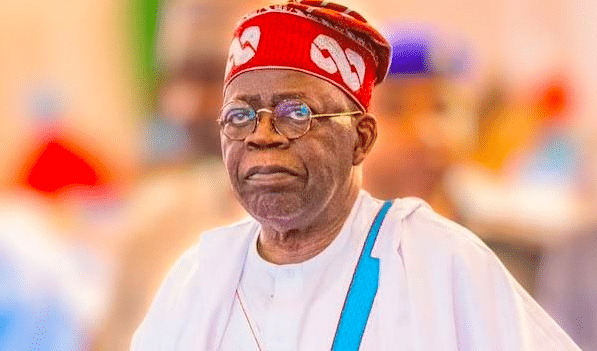
A third challenge that Nigerians are facing in 2024 is the leadership and political climate of the country. Nigeria is a multi-ethnic and culturally diverse federation of 36 autonomous states and the Federal Capital Territory.
The political landscape is partly dominated by the ruling All Progressives Congress party (APC), which controls the executive arm of government and holds majority seats at both the Senate and House of Representatives in parliament, and the majority of the states.
President Bola Tinubu was sworn into office on May 29, 2023, having won the February 2023 Presidential election with 37% of the vote, defeating his main rivals, Atiku Abubakar of the People’s Democratic Party (PDP) and Peter Obi of the Labour Party (LP), who polled 29% and 25% respectively.
President Tinubu came to power on a platform of fighting corruption and insecurity and of implementing economic and social reforms. He has been widely praised for his bold and decisive actions to remove the fuel subsidy, unify and liberalize the exchange rate, and attract foreign and domestic investment.
He has also been commended for his efforts to improve the security situation in the country by deploying more troops and resources to combat the insurgency by terrorist groups in the north-east, the banditry and kidnappings in the north-west, and the separatist agitations in the south-east.
He has also promised to increase the representation and participation of women and youth in his administration and to foster national unity and cohesion among the diverse ethnic and religious groups in the country.
READ: Nigerian award shows are worse than Grammys – Timaya
However, President Tinubu’s leadership and political climate have also faced some challenges and criticisms, such as:
– He has a weak mandate and legitimacy, as he won the election with less than 40% of the vote and with a low voter turnout of 35%. His victory is being challenged in court by the two opposition candidates, who allege that the election was rigged and manipulated in his favour.
He also faces resistance and opposition from some powerful interest groups and elites, who are unhappy with his reforms and policies and who seek to undermine his authority and agenda.
– He has inherited a fragile and polarized political system, which is prone to violence and instability. Nigeria has a history of military coups, civil wars, and electoral violence, which have threatened its democracy and unity.
Nigeria also has a complex and contentious federal system, which involves the sharing of power and resources among the three tiers of government (federal, state, and local) and the six geopolitical zones (north-west, north-east, north-central, south-west, south-east, and south-south).
Conflicts and tensions over issues such as revenue allocation, resource control, state creation, and regional autonomy often characterize the federal system.
– He has limited time and space to deliver on his promises and expectations, as he is serving his second and final term in office, which will end in 2025.
He also faces the pressure and distraction of the 2025 general elections, which are expected to be highly competitive and contentious as various political parties and candidates vie for power and influence.
He also faces the challenge of managing the succession process within his own party as some of his loyalists and rivals jostle for his endorsement and support.
The impact of the leadership and political climate on Nigerian society and economy is significant and profound.
The quality and effectiveness of the leadership and governance determine the direction and performance of the country and the well-being and prosperity of its people. The political climate also influences the level of peace and stability, the degree of social cohesion and inclusion, and the extent of civic engagement and participation in the country.
Strategies on How to Survive as a Nigerian in 2024
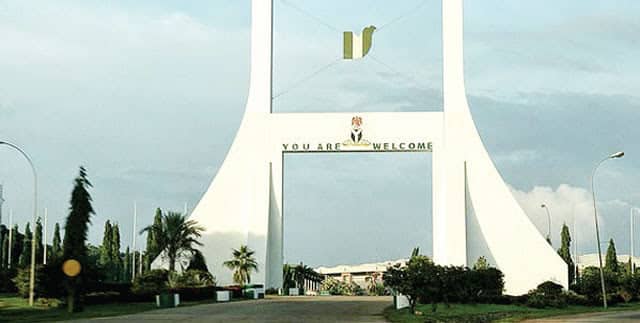
Leadership and Political Climate
To cope with the effects of the leadership and political climate, Nigerians need to adopt some strategies, such as:
1. Participating and influencing the political process:
By registering and voting in the elections, joining and supporting political parties and candidates that align with their values and interests, and holding them accountable for their actions and promises.
Nigerians also need to engage in constructive dialogue and debate and respect the diversity and plurality of opinions and perspectives in the country. Nigerians also need to avoid violence and intimidation and promote peace and harmony in the country.
2. Demanding and supporting good governance and leadership:
By monitoring and evaluating the performance and impact of the government and its policies and by providing feedback and suggestions for improvement. Nigerians also need to advocate and campaign for the respect and protection of human rights, the rule of law, and the fight against corruption and impunity in the country.
Nigerians also need to recognize and celebrate the achievements and contributions of the government and its leaders and to appreciate and acknowledge their challenges and limitations.
3. Developing and empowering themselves and their communities
By taking advantage of the opportunities and resources provided by the government and its partners and by contributing to the development and growth of the country.
Nigerians also need to enhance their skills and knowledge and to pursue their dreams and aspirations. Nigerians also need to support and cooperate with each other and to build and strengthen their social capital and networks.
READ ALSO: 10 Amazing Fulani Braids Hairstyle to Try Out This Year
Financial Management and Investment
One of the most important skills that Nigerians need to have in 2024 is financial management and investment. As we have seen, the Nigerian economy is facing a severe crisis characterized by high inflation, low growth, and currency devaluation.
These factors have a negative impact on the income and wealth of Nigerians and make it harder for them to meet their basic needs and achieve their financial goals. Therefore, Nigerians need to be smart and savvy with their money and adopt some strategies, such as:
1. Budgeting and managing expenses:
Nigerians need to have a clear and realistic budget that outlines their income and expenses and helps them to plan and prioritize their spending. Nigerians need to track and monitor their cash flow and avoid overspending or wasting money on unnecessary or frivolous items.
Nigerians need to cut down on their expenses and look for ways to save money, such as buying in bulk, using coupons and discounts, and bargaining for better prices.
2. Investing and saving:
Nigerians need to invest and save their money, to protect and grow their wealth and income and to hedge against the Naira’s devaluation and inflation. Nigerians need to diversify their portfolio and choose assets that offer higher returns and lower risks, such as treasury bills, bonds, stocks, mutual funds, and real estate.
Nigerians need to avoid holding too much cash or Naira-denominated assets and seek exposure to foreign currencies and commodities, such as gold and silver, which tend to appreciate in value during inflationary periods.
Alternative Energy Solutions
Another skill that Nigerians need to have in 2024 is alternative energy solutions. As we have seen, the removal of the petroleum subsidy and the fuel price hike have increased the cost and reduced the availability of fuel in the country.
Fuel is a key input for many goods and services, such as electricity, transportation, and manufacturing. Therefore, Nigerians need to find alternative and renewable sources of energy that can mitigate the impact of the fuel price hike and offer some benefits, such as:
1. Cost-effectiveness:
Alternative energy sources are cheaper than fossil fuels, as they have lower or zero operating and maintenance costs. For example, solar energy is free and abundant and only requires a one-time investment in solar panels and batteries. Alternative energy sources can also reduce the dependence on imported fuel and save foreign exchange.
2. Sustainability:
Alternative energy sources are cleaner and greener than fossil fuels, as they have lower or zero emissions and environmental impact. For example, wind energy does not produce any greenhouse gases or pollutants and only requires minimal land use.
Alternative energy sources can also reduce the carbon footprint and environmental impact of Nigeria, and contribute to the global fight against climate change.
3. Reliability:
Alternative energy sources are more reliable and stable than fossil fuels, as they are not affected by the volatility and fluctuations of the global oil market. For example, biogas energy is produced from organic waste, such as animal manure and crop residues, which are readily available and renewable.
Alternative energy sources can also improve the energy security and independence of Nigeria, and reduce the risk of supply disruptions and shortages.
Some of the alternative energy sources that Nigerians can explore and use in 2024 are:
- Solar energy: Solar energy is the most popular and widely used alternative energy source in Nigeria, as the country has abundant sunshine and solar radiation. Solar energy can be used to power homes and businesses by installing solar panels and batteries, which convert sunlight into electricity.
Solar energy can also be used to heat water, cook food, and charge devices by using solar water heaters, solar cookers, and solar chargers. Solar energy is cheap, clean, and reliable and can reduce the dependence on the national grid and generators, which are often unreliable and expensive.
- Wind energy: Wind energy is another alternative energy source that Nigerians can use in 2024, especially in the coastal and hilly areas, where the wind speed and potential are high. Wind energy can be used to generate electricity by installing wind turbines, which convert wind into mechanical power.
Wind energy can also be used to pump water, irrigate crops, and mill grains by using wind pumps, windmills, and wind generators. Wind energy is free, green, and stable and can complement solar energy, as the wind is stronger at night and during the rainy season when the sun is weaker or absent.
- Biogas energy: Biogas energy is another alternative energy source that Nigerians can use in 2024, especially in the rural and agricultural areas, where there is a lot of organic waste, such as animal manure and crop residues.
Biogas energy can be produced by anaerobic digestion, which is a process that breaks down organic matter in the absence of oxygen and produces biogas, which is a mixture of methane and carbon dioxide.
This energy source can be used to generate electricity by using biogas generators, which convert biogas into electrical power. Biogas can also be used to cook food, heat water, and light lamps by using biogas stoves, biogas heaters, and biogas lanterns.
Biogas is low-cost, eco-friendly, and consistent, and can reduce the dependence on firewood and charcoal, which are often scarce and harmful.
Community and Networking
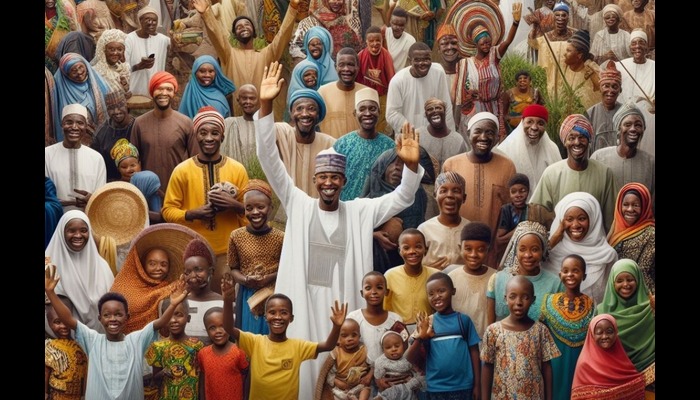
One of the key survival strategies as a Nigerian in 2024 would be engaging with and developing strong ties with the community and networking effectively.
Community and networking are generally very important for one’s survival in Nigeria—most especially during times of crisis and situations of unknown resolutions. They may provide reciprocated help, sharing of resources, as well as opportunities for learning and earning.
Community is a word given to groups of people who share a common identity, interest, or goal. Communities can pull together to work out their common challenges in a more promising way, such as security, water, sanitation, education, and livelihoods.
For instance, some communities have organized vigilante groups to protect themselves from bandits and kidnappers. Others have contributed resources to drill boreholes, build schools, or start cooperatives.
Community-led development is a process that guides the empowerment in the community to be able to identify and solve its problems with a participatory approach. It has many benefits, such as increased ownership, empowerment, participation, and sustainability.
Examples of community-led development projects which have been successful in Nigeria include the Community and Social Development Project (CSDP), which provides community-driven micro-projects in different sectors, and the Nigeria Network of NGOs (NNNGO), which supports the development of civil society organisations.
Another successful community development project for the social cohesion and integration of Nigerians is the Nigerians in Yorkshire Community Network (NYCN).
People with strong community relations can join or start local groups around associations, clubs, unions, and cooperatives. These can give a sense of belonging, solidarity, and identity to people.
They can also afford opportunities to socialize and volunteer, organize events, and support local initiatives. For example, such groups can be religious, cultural, professional, and hobby groups.
Networking means keeping or creating good relations with certain people who can help in achieving set personal or professional goals.
This is to say that networking provides opportunities, which can be highly valuable in a tough job market, either with regard to learning new skills, obtaining information, reaching out to people, or even creating alliances. For instance, one can network with future employers, mentors, fellow employees, and even customers.
Networking has a lot of platforms and ways to have a good network: through social media, online forums, webinars, podcasts, newsletters, and blogs. A person is able to showcase his or her talents, share his or her ideas, learn from others, and new opportunities are there to be discovered.
This may be, for instance, networking with like-minded individuals, influencers to follow, groups to join, or content to be posted, on LinkedIn, Twitter, Facebook, or Instagram.
However, networking also comes with professionalism and ethics. One ought to be respectful, courteous, honest, and helpful when interacting with others. One should also not spam, troll, or scam others. One should also follow up, give feedback, and express gratitude wherever it is due.
Health and Well-being
Another key strategy for survival as a Nigerian in 2024 is to maintain mental and physical health amidst economic and social pressures. Health and well-being are crucial for survival in Nigeria, especially in the context of the COVID-19 pandemic and other health threats.
According to the World Health Organization, Nigeria faces many health challenges, such as high maternal and child mortality, high burden of communicable and non-communicable diseases, low access to health services and facilities, and weak health system governance and financing1.
The COVID-19 pandemic has further exposed and exacerbated these challenges, as well as disrupted essential health services and increased the risk of infection and death for health workers and vulnerable populations2.
To cope with these challenges, Nigerians need to adopt affordable healthcare options and preventive health practices, such as:
Using primary healthcare centres, community health workers, and traditional healers as they are often more accessible, affordable, and culturally acceptable than secondary or tertiary health facilities.
Adopting healthy behaviours, such as washing hands, wearing masks, getting vaccinated, avoiding tobacco and alcohol, eating well, exercising regularly, sleeping enough, and managing stress.
Seeking help when needed, such as consulting a health professional, a counsellor, a religious leader, or a trusted friend, if one experiences any physical or mental health problems or distress.
Governance and Civic Engagement
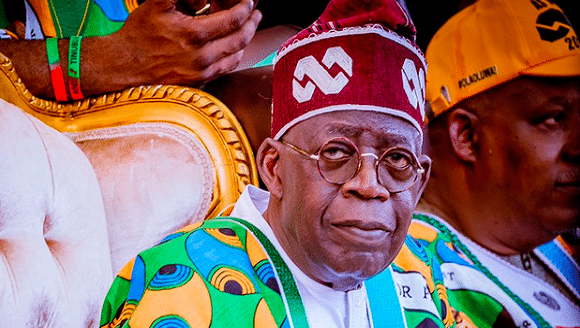
A final strategy for survival as a Nigerian in 2024 is to navigate governance and civic engagement in a way that promotes positive change and accountability. Governance and civic engagement refer to the processes and mechanisms through which citizens interact with their government and influence public policies and decisions.
Nigeria is a federal republic with a presidential system of government, where the executive, legislative, and judicial branches are separate and independent. However, Nigeria also faces many governance challenges, such as corruption, insecurity, human rights violations, electoral malpractice, and weak institutions.
To overcome these challenges, Nigerians need to stay informed and engaged in political and economic developments, as well as prepare for future elections, such as:
Staying informed about political and economic developments, such as by following credible news sources, researching issues and candidates, and joining civic education programs.
Engaging in civic activities and advocating for positive changes, such as by joining or forming civil society organizations, networks, or movements, participating in public consultations or petitions, and holding government officials accountable.
Preparing for future elections, such as by registering to vote, educating oneself and others about the electoral process and the candidates, and encouraging active participation in the political process to influence better governance.
Skill Acquisition and Digital Opportunities
The third skill that would be required by Nigerians in 2024 includes the acquisition of skills and digital opportunities. It has been observed that the transformation within the economic and social policies and the COVID-19 pandemic had an impact on the economy in Nigeria.
This, in its wake, has brought about challenges and opportunities in very many different forms for Nigerians, but most importantly in the labour market, which is becoming competitive and dynamic.
Therefore, the acquisition of new skills or raising the current level of skills by Nigerians to match the changing economic environment is necessary to benefit from the digital opportunities available in learning and earning. Some of the benefits of digital opportunities are in the acquisition of skills:
- Employability: Skills and digital opportunities would help build the base of employability and further the earning potentials of Nigerians, making them more qualified and competitive to get the available jobs and careers in the market.
In turn, it is the provision of digital and skill acquisition opportunities that can equally help Nigerians create jobs and business establishments by identifying and trying to fill in the existing gaps and needs in the market.
This will also enable Nigerians to diversify and consolidate their sources of income, having multiple streams of income and passive income in skill acquisition and the digital platform.
Acquisition of skills, as well as digital opportunities, can enhance their productivity and performance, thereby making them efficient and effective in their work and tasks.
- Productivity: skills acquisition and digital opportunities can raise the bar because of the inherent value found in the products and services of Nigerians with the leverage to engage in the best practices and standards in their industry and market.
The acquisition of skills and exposure to digital opportunities enhances the innovation and problem-solving ability of Nigerians in the sense that they would be able to use the latest tools and technologies in their field and domain.
- Learning: It allows a learning curve with room for skill acquisition and digital opportunities, encouraging learning and development towards being informed and skilled individuals in the areas of interest and expertise.
ALSO: NFF blames CBN over Super Eagles non-payment of allowances
Nigerians can acquire and use skills and digital opportunities in 2024:
- Digital literacy: This consists of the understanding of knowledge about and the ability to use and understand devices, tools, and platforms that are digital, for example, computers, smart gadgets, tablets, software, applications, and the web.
Nigeria is highly in need of digital literacy, which involves the ability to access and use the internet by 2024, being the doorway to many opportunities and resources online.
Digital literacy also enables Nigerians to communicate and socialize with others online through emails, social media, and instant messaging. Digital literacy also allows Nigerians to author and share digital materials, such as through e-books, videos, podcasts, and blogs.
- Entrepreneurship: Entrepreneurship is the process of finding market opportunities and exploiting them in establishing and managing a business or enterprise.
In 2024, entrepreneurship becomes the most important part for Nigerians. The sector through which they are able to create income and wealth and further contribute to the country’s development both in terms of economic and social development.
Entrepreneurship also gears up Nigerians to be self-reliant and independent, to add, it equips them to have more control and flexibility in relation to work and life. Entrepreneurship also makes Nigerians empowered to become creative and innovative, make solutions, and meet the needs of the market.
- Creativity: The ability to bring forth novel and valuable ideas, products, or solutions. Creativity is an applicable component of the Nigerians of 2024 in the sense that it will enable them to be over the noise, make them stand out from mediocrity, and do what they do with added value and better quality.
Creativity will also enable Nigerians to adapt and cope with the changing and challenging environment and to have new and better ways of doing things. Creativity will also enable Nigerians to express and enjoy themselves and to have fun and satisfaction in their work and life.
Conclusion
As we face 2024, things look tough with money issues and political changes. But remember, we Nigerians are known for our strong spirit. This year, it’s about doing more than just getting by; it’s about thriving.
We’ve got to use our creativity, help each other out, and stay hopeful. Let’s tackle these challenges together, find new ways to succeed, and make 2024 a year where we all move forward. Here’s to staying strong, sticking together, and making a better future for all of us in Nigeria.



